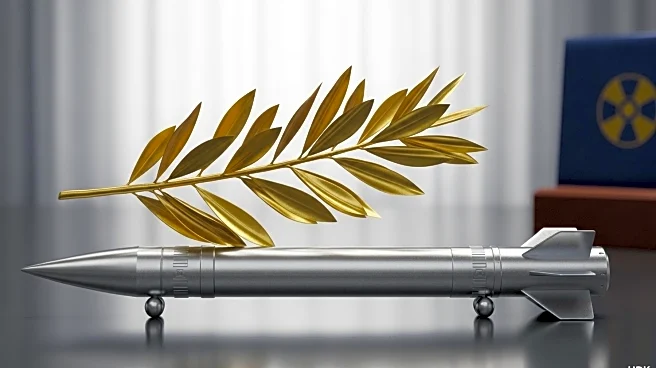What is the story about?
What's Happening?
Russian President Vladimir Putin has announced Russia's willingness to adhere to the New START nuclear arms treaty with the United States for an additional year after its expiration in February. The New START, originally signed in 2010, limits both nations to 1,550 deployed nuclear warheads and 700 deployed missiles and bombers. Despite the treaty's expiration looming, Putin emphasized the importance of maintaining these limits to prevent a strategic arms race and foster dialogue with the U.S. The treaty's inspections were halted in 2020 due to the COVID-19 pandemic and have not resumed. Putin's proposal comes amid heightened tensions between Russia and the West, particularly concerning the conflict in Ukraine.
Why It's Important?
The extension of the New START treaty is crucial in maintaining global nuclear stability and preventing a new arms race. The treaty serves as a cornerstone of nuclear arms control between the U.S. and Russia, the world's two largest nuclear powers. Its expiration without a successor could lead to increased nuclear proliferation and heightened global tensions. Arms control advocates have long warned of the risks associated with the treaty's expiration, emphasizing the need for continued dialogue and cooperation. The proposal also highlights the geopolitical complexities surrounding U.S.-Russia relations, particularly in the context of ongoing conflicts and strategic rivalries.
What's Next?
The U.S. response to Putin's proposal will be pivotal in determining the future of nuclear arms control between the two nations. If the U.S. reciprocates, it could pave the way for further negotiations and potentially a new treaty. However, if the proposal is not accepted, it could lead to increased tensions and a potential arms race. The international community, including NATO allies, will be closely monitoring developments, as the outcome will have significant implications for global security and stability.














